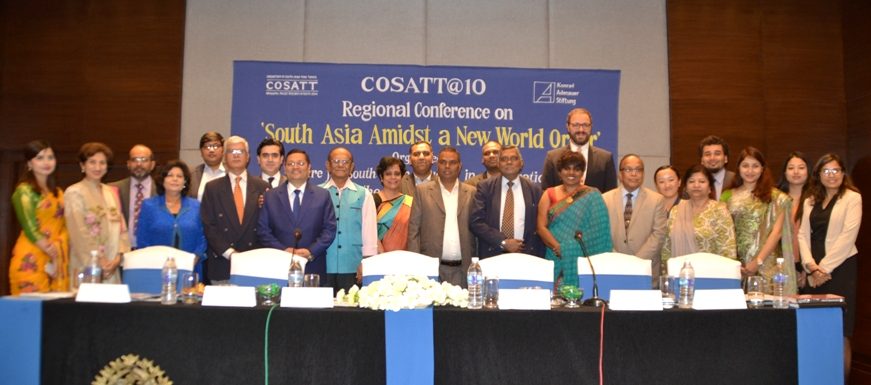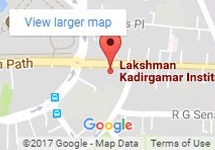
Reading Time: 2 min read
Malinda Meegoda, Research Associate at LKI, spoke on ‘Indian Ocean Security in a Nuclearised South Asia: Challenges, Hopes and Prospects’ at a conference titled, ‘South Asia Amidst a New World Order.’ The conference was organised by the Consortium of South Asian Think Tanks (COSATT) to mark the 10th anniversary of COSATT and was held in Kathmandu, Nepal, on 25-26 March 2018.
Mr. Meegoda discussed the limitations of the current disarmament and nuclear risk reduction measures in South Asia, and the overall lack of progress achieved in one of the most volatile regions in the world. Focusing on the ascent of the regional nuclear weapons states and their growing nuclear naval capabilities—Mr. Meegoda argued that advancing forms of sea base nuclear deterrence represent a growing threat to the overall security of the region, as the risk of inadvertent escalation looms greater in comparison to other forms or nuclear warfare. Two main reasons attributed to this escalation were: (1) the higher probability of naval nuclear vessels of rival powers encountering each other in the maritime domain, and (2) meeting the challenge of maintaining existing nuclear safety guidelines with subsurface vessels such as SSBNs (nuclear-powered submarines).
In his presentation, Mr Meegoda also highlighted the possible implications of the United States Nuclear Posture Review on the region. He argued that the Nuclear Posture Review, with its recommendations on developing low-yield nuclear weapons, can legitimise and encourage similar actions from other nuclear actors in the region, while opening up the space for a new arms race.
Mr. Meegoda advocated that smaller states such as Sri Lanka can play a significant role to advance the discussion on regional peace, security, and nuclear disarmament. He noted that by joining the growing list of states that have signed on to the Treaty on the Prohibition of Nuclear Weapons, smaller states can contribute to renewing the global commitment to nuclear disarmament. Mr. Meegoda added that it may be time to revisit the concept of Nuclear Weapon Free Zones in the region and evaluate the feasibility of implementing similar arrangements in a limited manner that would be beneficial to smaller states such as Sri Lanka.
The conference was attended by policymakers, representatives of think tanks and academics from all eight SAARC countries (Sri Lanka, India, Pakistan, Bangladesh, Nepal, Bhutan, Maldives, Afghanistan).



